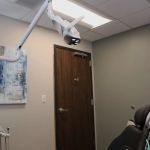Signs You Need a Root Canal
Root canals can be a daunting procedure for many people, but they are often necessary to save a tooth from extraction. Understanding the signs that indicate you might need a root canal is important in preventing further damage to your teeth and alleviating any discomfort. As someone who has experienced dental issues firsthand, I can tell you that recognizing these early symptoms can make all the difference. Let’s dive into the most common signs that you may need a root canal and how to address them.
1. Persistent Tooth Pain
One of the most obvious and common signs that you may need a root canal is persistent tooth pain. This pain often worsens when chewing or applying pressure to the tooth. You may experience sharp, throbbing, or constant pain in the affected area. If the pain does not go away after a few days or keeps getting worse, it's time to schedule an appointment with your dentist to rule out any potential problems with your tooth’s root.
2. Sensitivity to Hot and Cold
Do you find yourself wincing in pain when you drink something hot or cold? If so, you might be dealing with a deep dental issue, possibly requiring a root canal. Sensitivity to temperature—whether it’s hot coffee or an ice-cold drink—is a common sign of nerve damage inside the tooth. The pain from such sensitivity tends to linger long after the stimulus is removed. If this sounds familiar, it’s important to get it checked out before the issue progresses further.
3. Swollen or Tender Gums
If the gums surrounding a specific tooth are swollen, tender, or appear red, it may be a sign of an infection deep inside the tooth. This often happens when the tooth's pulp becomes infected, which can cause the infection to spread to the gums and the surrounding areas. In some cases, you may even notice a small pimple-like bump on the gum that may drain pus. This is a clear indication that there is an infection present, and a root canal may be required to remove the infection and save the tooth.
4. Discoloration of the Tooth
When a tooth’s pulp becomes damaged or infected, it can affect the tooth’s appearance. Often, the tooth may become darker, which is a sign of decay and damage to the tooth's internal structure. If you notice a tooth turning gray or black, it’s best to consult your dentist as it could mean the nerve inside the tooth is dying and may require a root canal to prevent further damage or extraction.
5. A Chipped or Cracked Tooth
Chipped or cracked teeth can also be indicators that you need a root canal. If the crack or chip reaches the pulp, it can cause nerve damage and lead to an infection. In some cases, these fractures may not cause immediate pain, but the internal damage could be causing long-term issues. If you experience any type of dental trauma, it’s important to get your tooth examined to ensure there’s no damage to the pulp, even if there’s no immediate pain.
6. Tooth Mobility
If you notice that a tooth is becoming loose or is moving around when you chew, it’s a strong indication that the infection has spread to the tooth’s root and supporting bone structure. A loose tooth can be a sign that the infection is affecting the tooth’s foundation, and a root canal may be necessary to stop further damage and preserve the tooth.
How a Root Canal Can Help
A root canal is a procedure that involves removing the infected or damaged pulp inside the tooth, cleaning the inside, and then sealing it to prevent further infection. It’s a highly effective way to save a tooth from extraction. While it’s not a procedure most people look forward to, it’s often the best way to keep your smile intact and avoid more serious complications down the road.
Don’t let fear or uncertainty about the procedure stop you from seeking the care you need. If you’re experiencing any of the above symptoms, make sure to schedule a visit to your dentist as soon as possible. Early intervention can help prevent the need for more complicated treatments later on.
At Dentistry Toothtruth, we provide expert advice and services to help you maintain your dental health. Don’t hesitate to reach out to us for more information on root canals or other dental care needs. We’re here to help!







 Jennifer Barrett0.0 (0 review)
Jennifer Barrett0.0 (0 review) Britely Dentures + Implants Studio4.0 (165 review)
Britely Dentures + Implants Studio4.0 (165 review) Dr. Nil Yucel, DDS4.0 (94 review)
Dr. Nil Yucel, DDS4.0 (94 review) Chatsworth Family Dental Group4.0 (366 review)
Chatsworth Family Dental Group4.0 (366 review) Fairview Dental4.0 (108 review)
Fairview Dental4.0 (108 review) West Covina Dental Group and Orthodontics4.0 (274 review)
West Covina Dental Group and Orthodontics4.0 (274 review) The Importance of Oral Health Education During Pregnancy for a Healthy Pregnancy
The Importance of Oral Health Education During Pregnancy for a Healthy Pregnancy Best Tips for Brushing Your Teeth Properly for Healthy Gums: Essential Techniques for Oral Health
Best Tips for Brushing Your Teeth Properly for Healthy Gums: Essential Techniques for Oral Health Why Skipping Dental Checkups Can Lead to Bigger Oral Health Problems
Why Skipping Dental Checkups Can Lead to Bigger Oral Health Problems Advantages of Porcelain Dental Restorations
Advantages of Porcelain Dental Restorations How Can Diabetes Cause Tooth and Gum Problems? Preventing and Managing Oral Health Issues
How Can Diabetes Cause Tooth and Gum Problems? Preventing and Managing Oral Health Issues Healthy Habits for Promoting Good Oral Health and Hygiene: Tips for a Healthy Smile
Healthy Habits for Promoting Good Oral Health and Hygiene: Tips for a Healthy Smile